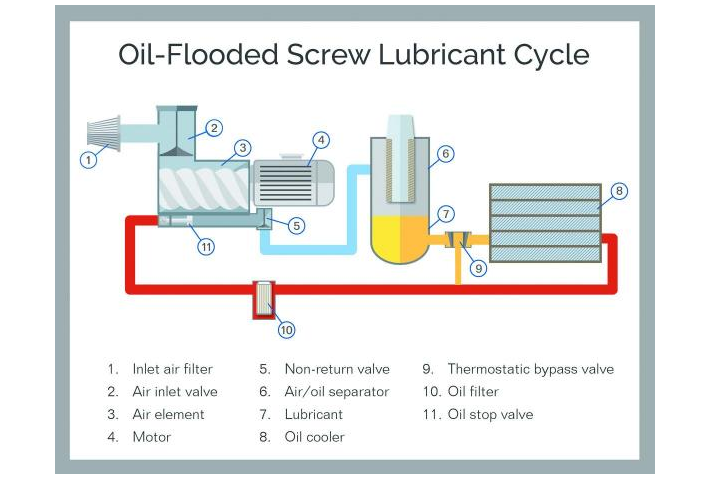Oil & Gas Separator in Air Compressors | Maintenance & Replacement Guide
Discover the importance, maintenance, and replacement of oil and gas separators in air compressors. Explore how to maintain your separator for optimal performance.
Sofiya
8/27/20252 min read
The oil & gas separator in air compressors is a crucial component that ensures clean, dry, and uncontaminated air is delivered to your machinery. By separating oil from the compressed air, the separator prevents oil contamination, which could harm sensitive parts such as pneumatic tools and engines.
This guide covers the maintenance and replacement of oil and gas separators, explaining their importance in keeping your air compressor system running efficiently.
1. Why is the Oil & Gas Separator Important in Air Compressors?
The oil & gas separator ensures that your air compressor operates smoothly by removing excess oil from the compressed air. If oil is not separated, it can clog filters, damage equipment, and reduce the compressor's efficiency. Whether you're using an industrial rotary screw air compressor or a piston compressor, the oil and gas separator is essential for maintaining high-performance standards and extending equipment lifespan.

2.How Does an Oil & Gas Separator Work in Air Compressors?
An oil & gas separator in air compressors works by using centrifugal force to separate oil from the compressed air. The air enters the separator at high speed and is spun in a circular motion, causing the heavier oil particles to move toward the outer edges of the separator, where they are collected and drained off. The clean, oil-free air continues into the system for use in various industrial applications.
3. Maintenance of Oil & Gas Separators in Air Compressors:
Over time, oil buildup can reduce the effectiveness of the separator, leading to poor performance and increased wear on the equipment. Here are some key maintenance steps:
(1)Regular Inspection: Inspect the separator for signs of oil residue, damage, or leaks.
(2)Clean the Separator: Clean the separator every few months to remove oil buildup and debris.
(3)Monitor Oil Levels: Ensure the separator has the correct oil levels, as recommended by the manufacturer.
To download detailed maintenance tips, visit Wemano screw air compressor.
4. When Should You Replace an Oil & Gas Separator?
Even with regular maintenance, oil and gas separators eventually need to be replaced. Here are the key signs that it’s time to replace your separator:
(1) Poor Separation : If the separator is no longer separating oil effectively, causing contamination in the air.
(2) Increased Downtime : Frequent breakdowns and costly repairs.
(3) Aging Equipment : If the separator has been in service for many years and is no longer working efficiently.
If you need to replace your oil & gas separator, check out our options at Wemano Compressors
5. Benefits of Replacing Your Oil & Gas Separator :
Replacing an old or inefficient separator has several benefits:
(1)Improved Efficiency : Ensures clean, dry air, improving overall compressor performance.
(2)Reduced Maintenance Costs : Fewer repairs and longer-lasting equipment.
(3)Extended Equipment Life : By keeping the system clean, the separator helps prevent costly damage to other equipment.
Conclusion :
The oil & gas separator in air compressors is an essential component for maintaining clean, dry, and efficient air systems. Regular maintenance and timely replacement can help you avoid costly repairs and extend the lifespan of your equipment. Whether you’re replacing an old separator or installing a new one, it’s crucial to select a high-quality, reliable product that fits your system’s needs.
Learn more about our oil and gas separator solutions at Wemano Compressors.


